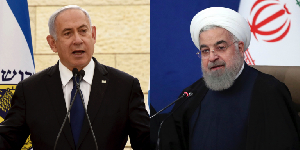Nigeria’s transport inflation rose to a 15-year high of 18.74% in the month of September 2021, representing a 50-basis points increase compared to 18.24% recorded in the previous month. This is also the highest level since August 2007.
This information is contained in the recently released Consumer Price Index (CPI) report by the National Bureau of Statistics (NBS) a copy of which was obtained by Nairametrics.
In case you missed it, the CPI report showed that Nigeria’s headline inflation rate rose to a 17-year high of 20.77% in September 2022, driven by increases in the core and food index. The core inflation, which excludes the prices of volatile agricultural produce, stood at 17.6% up from 17.2% recorded in August 2022.
Similarly, the food inflation rate was 23.34% on a year-on-year basis, indicating an uptick from the 23.12% recorded in the previous month.
Drivers of Nigeria’s transport cost
The increase in the transport index was largely driven by the surge in energy prices – diesel prices hit a record high across the country, same as Jet A1 fuel or aviation fuel.
According to the NBS, the core index was driven by the increase in the price of gas, liquid fuel, air transport, road transport, and solid fuel.
Between January and August 2022, the price of diesel surged by 171.9% to sell for an average of N786.9 per litre from N289.4/litre as of December 2022.
Consequently, the cost of road transport also rose by at least 40% year-on-year according to data from the NBS.
In addition, the ban on motorcycle taxis in Lagos State contributed to an increased demand for bus transportation within the city, thus leading to a significant increase in the cost of transportation intra-city.
Also, as a result of the increase in the cost of aviation fuel and the persistent depreciation of the exchange rate against the US dollar, airfares went up 200% year-to-date, with a one-way ticket costing a minimum of N70,000.
What this means
Nigeria continues to maintain a high inflationary environment despite measures by the monetary regulators to tame it. Recall that the CBN raised the monetary policy rate to 15.5% during its last MPC meeting held in September 2022, following two previous consecutive rate hikes, all in a bid to curb the rising cost of goods and services.
Despite the move, the inflation rate has continued to soar, reaching a 17-year high in September 2022. This means that Nigerians are paying more for goods even as the people’s purchasing power are continue to be limited.
With the festive season around the corner, transportation costs could increase further due to increased demands.
Business News of Tuesday, 18 October 2022
Source: www.nairametrics.com













